The Second Uzbekistan Economic Forum 2022
15/11/2022 - 12:23 1228
Samarkand, Uzbekistan, 11 November, 2022 - More than 1,600 delegates attended this year’s Uzbekistan Economic Forum on November 3-4 in the ancient Silk Road city of Samarkand – including 900 international investors, business executives and development partners – underscoring the rising interest in the country’s economic and social reforms even as financial and geopolitical headwinds threaten the region.
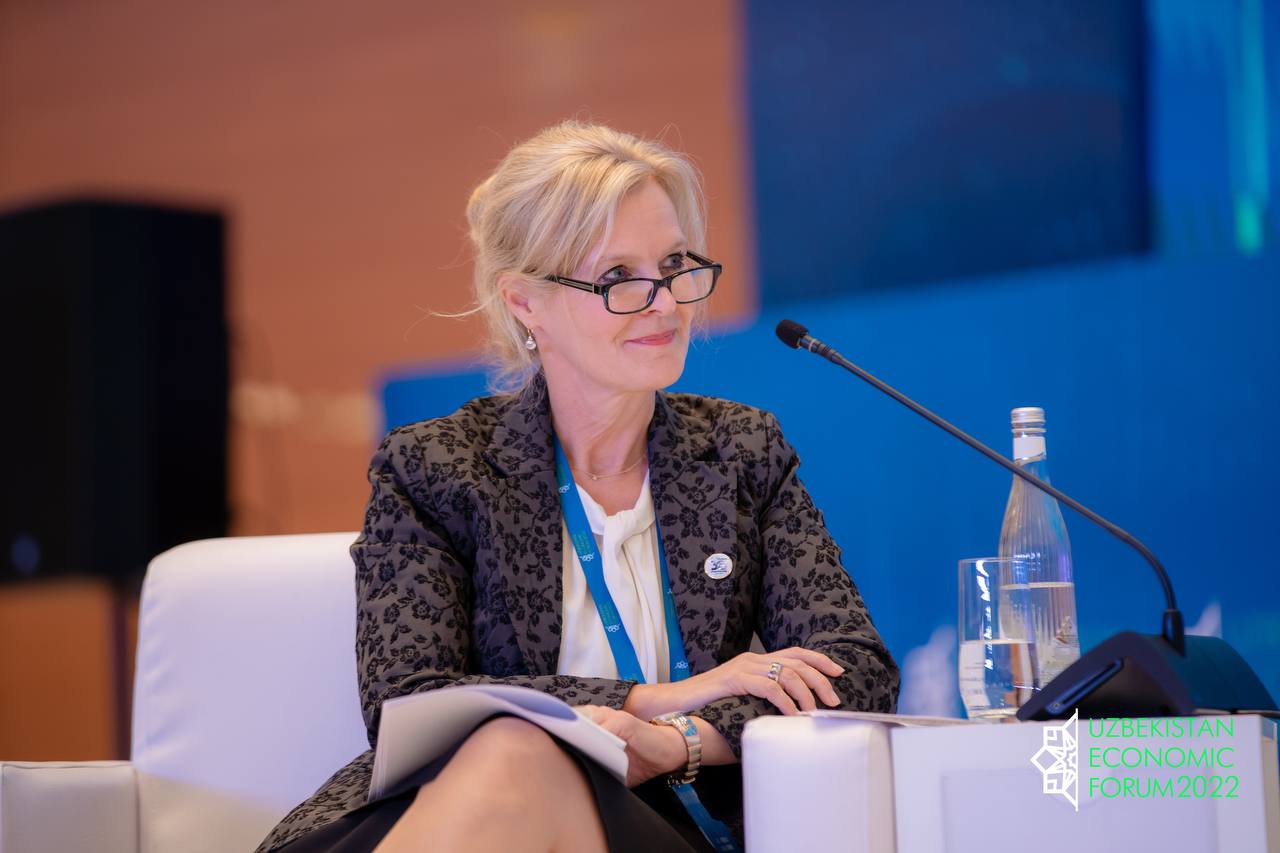
Discussions centered on the country’s strategy for the next five years, as well as the achievements of Uzbekistan’s first National Development Strategy for 2017-2021, and included partners from the World Bank, Asian Development Bank, Asian Infrastructure Investment Bank, the International Monetary Fund, International Finance Corporation, Islamic Development Bank and the European Bank for Reconstruction and Development. In just its second year, the international forum has become the largest event of its kind in Central Asia and the wider region.
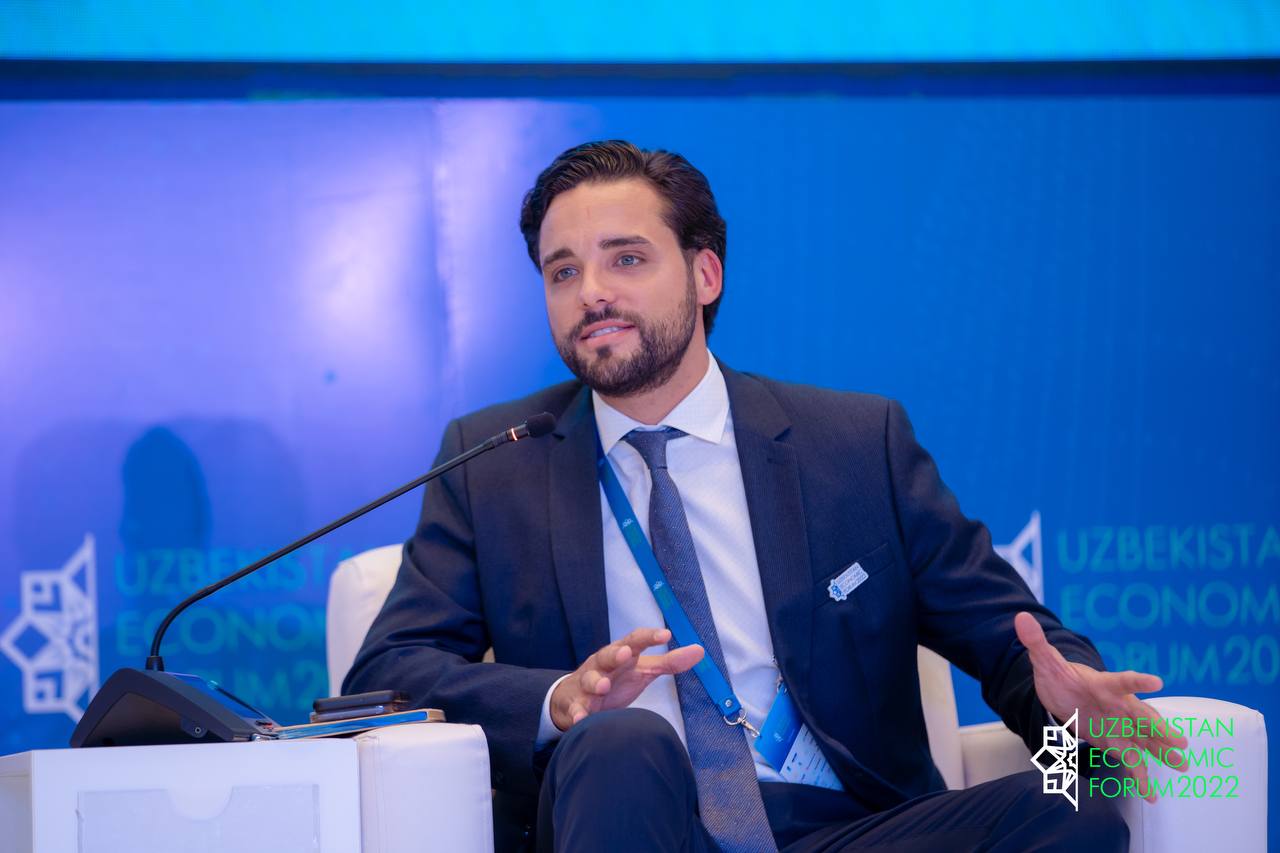
“I really commend the government of Uzbekistan for having a second forum of this kind,” said Anna Bjerde, Vice President of Europe and Central Asia at the World Bank. “It has attracted so much attention, so many people, and the type of conversation that is taking place, both in the open plenaries, in the side events and in the corridors, is absolutely fabulous.”
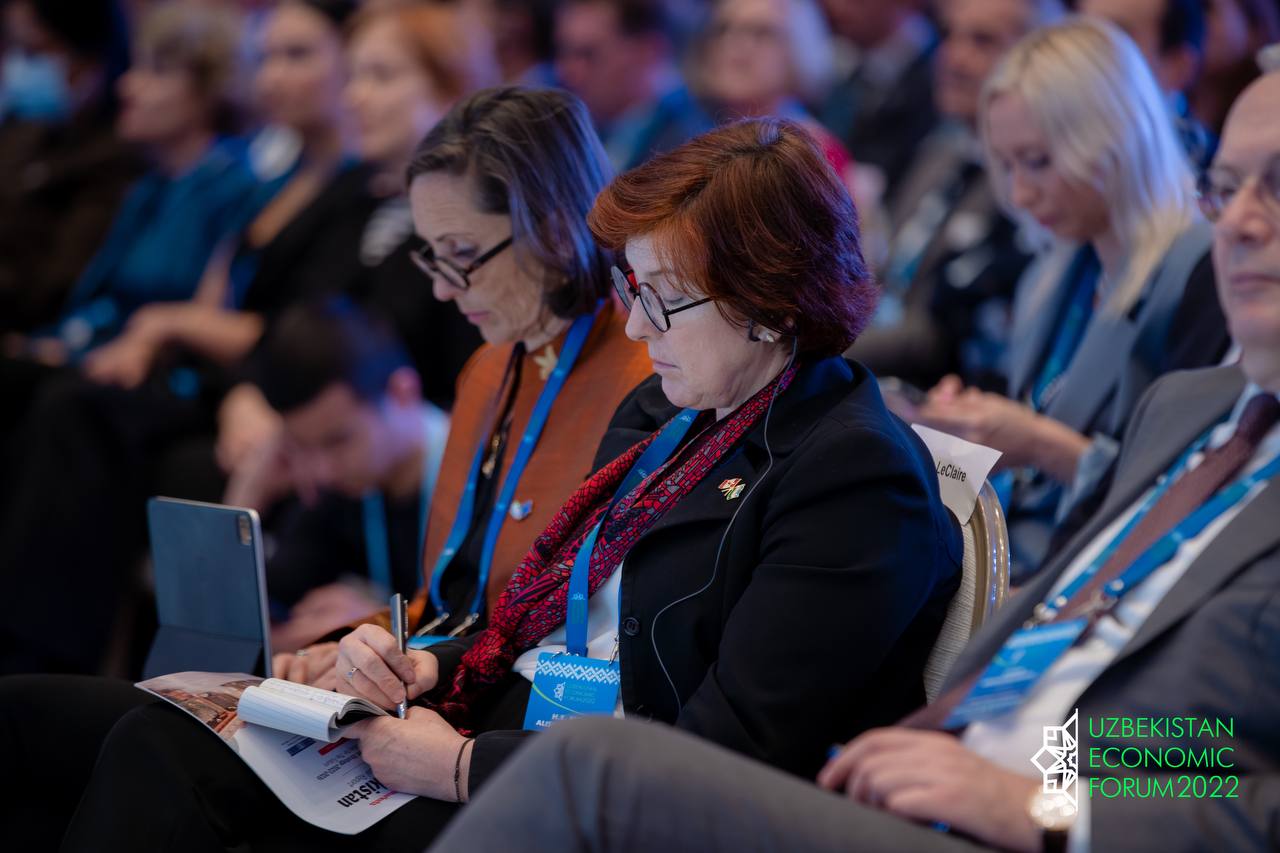
Uzbekistan’s economy grew 5.8 percent in the first nine months of 2022, far outpacing the regional average. Five years after launching one of the world’s most expansive economic reform programs, the country’s economy continues to outperform most of the world’s developing countries even amid significant challenges such as the Russia-Ukraine conflict, trade disruptions, widespread fiscal tightening, and the continuing fallout of the Covid-19 pandemic. While the World Bank recently raised its economic outlook for the region, it is still expected to contract overall.

The list of guests and speakers demonstrated a high level of engagement between Uzbekistan and its regional and global partners, with central bankers arriving from Kazakhstan, Georgia, Azerbaijan, and Armenia. Other influential speakers included Jihad Azour, Director of the Middle East and Central Asia Department for the International Monetary Fund; Hela Cheikhrouhou, Regional Vice President of the International Finance Corporation; Asian Infrastructure Investment Bank Vice President Konstantin Limitovskiy, and Axel van Nederveen, Managing Director and Treasurer of the European Bank for Reconstruction and Development.
A total of 14 discussions were devoted to the New Uzbekistan Development Strategy for 2022-2026, examining a wide range of social, financial and economic issues addressed in the plan including:
- Building a robust financial system that meets global standards
- Liberalizing and expanding trade
- Privatizing state-owned enterprises, including through initial public offerings (IPOs)
- Building a more inclusive society and expanding opportunities for women
- Creating a greener economy and improving energy security
- Expanding and modernizing infrastructure
- Developing human capital through education reform and empowerment
- Greatly increasing the role of the private sector and public-private partnerships
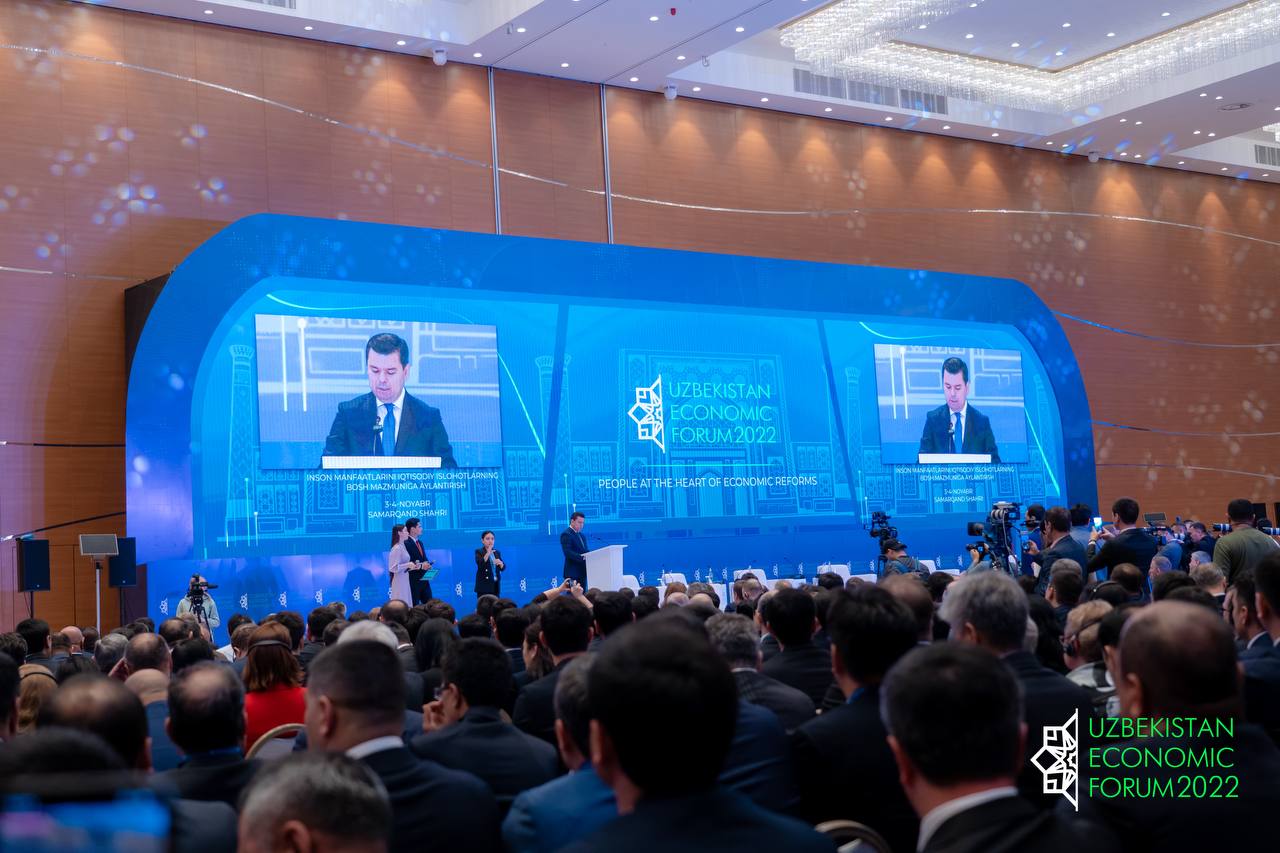
“The commitment to the reform from the government is very, very strong and they do have the vision of how they are going towards for the future,” said Shixin Chen, Vice President of the Asian Development Bank. “So now they have the national development strategy from 2022 to 2026, which defines how they are going ahead in many dimensions, the private sector reform and SOE reform as well.”
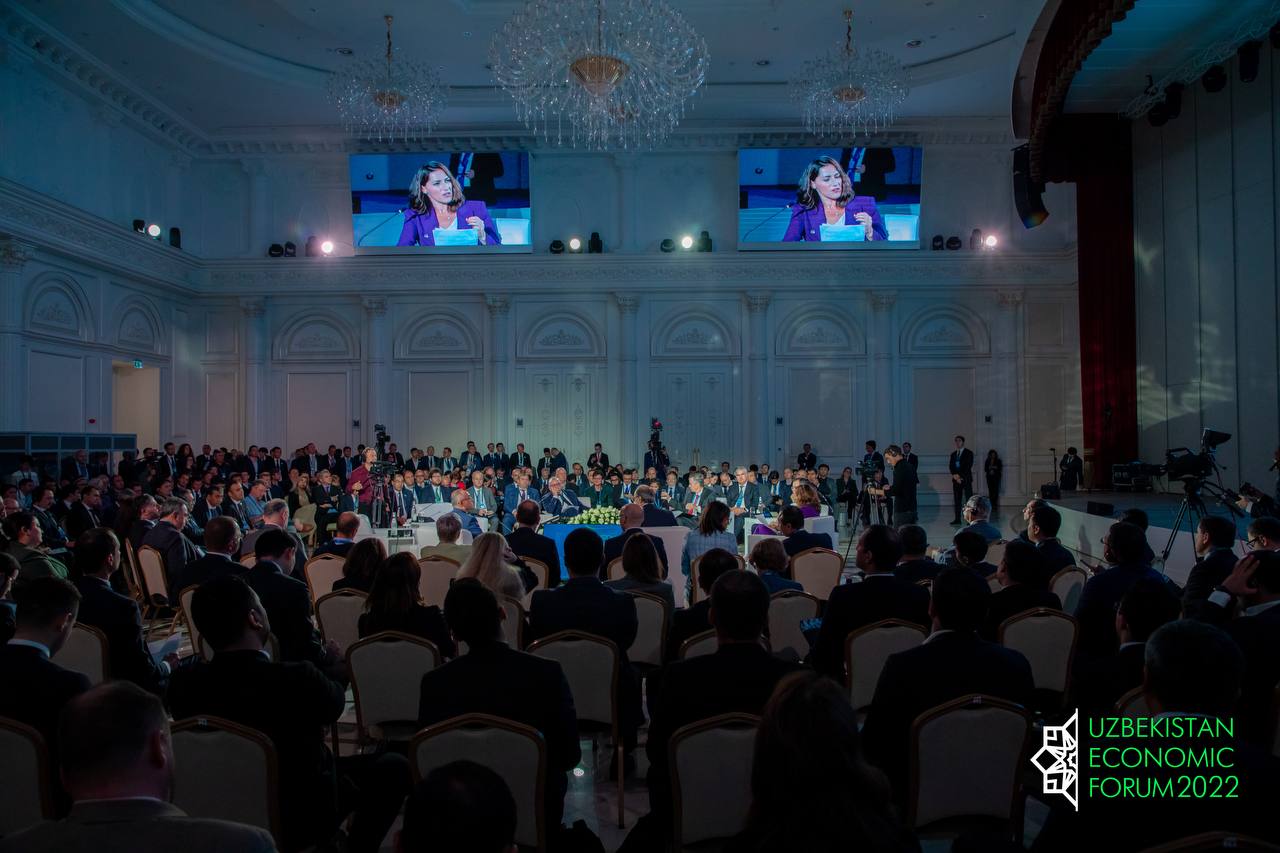
Private enterprise was represented by a wide range of financial institutions including Deutsche Bank, Credit Suisse, LBBW, Commerzbank, JPMorgan, Citi, Société Générale, Natixis, PKO Bank Polski, TBC Bank, Sumitomo Corporation, Mitsubishi UFJ Financial Group (MUFG) Bank of New York Mellon Corp., Standard Chartered Bank and Raiffeisen Bank International. Industrials joining the event included ACWA Power, Suez and Veolia Group, Metito Utilities, Toyota Tsusho, Hitachi Construction Machinery, Electricité de France (EDF), VEON, Open Minerals and Alarko Energy Group.
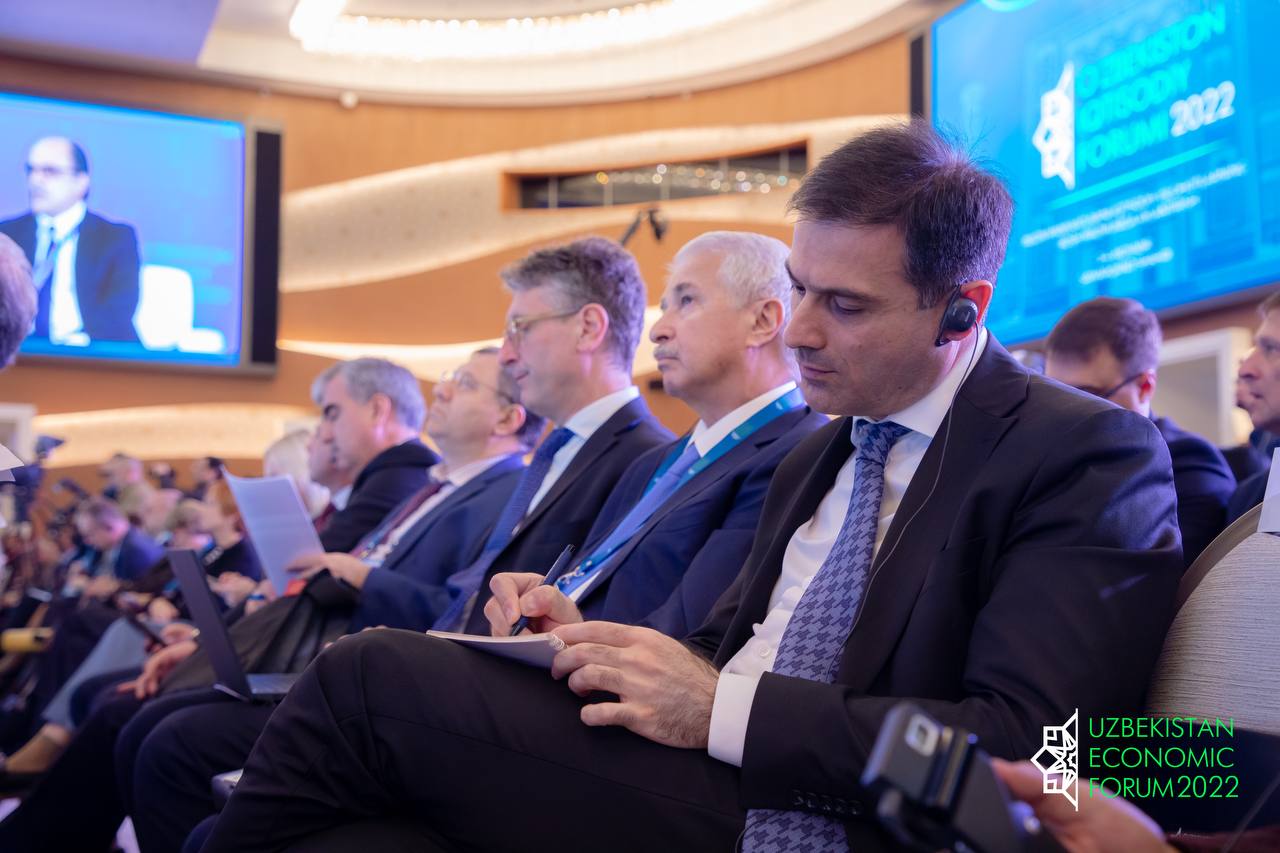
The government contingent, led by Deputy Prime Minister Jamshid Kuchkarov, included Senate Chairperson Tanzila Narbaev and Central Bank Governor Mamarizo Nurmuratov, as well as ministers and vice ministers covering finance, transportation, health public education and more.
In all, the forum included 15 industry specific partner events. TBC Group, a Tiblisi, Georga-based, London-listed digital bank, chose to hold its capital markets day at the forum in Samarkand. The bank has more than 2 million customers and more than $100 million in deposits in the country. The International Monetary Fund decided to deliver its latest regional outlook report at the forum, a first for Uzbekistan and one of many signs of the country’s growing profile in the region.
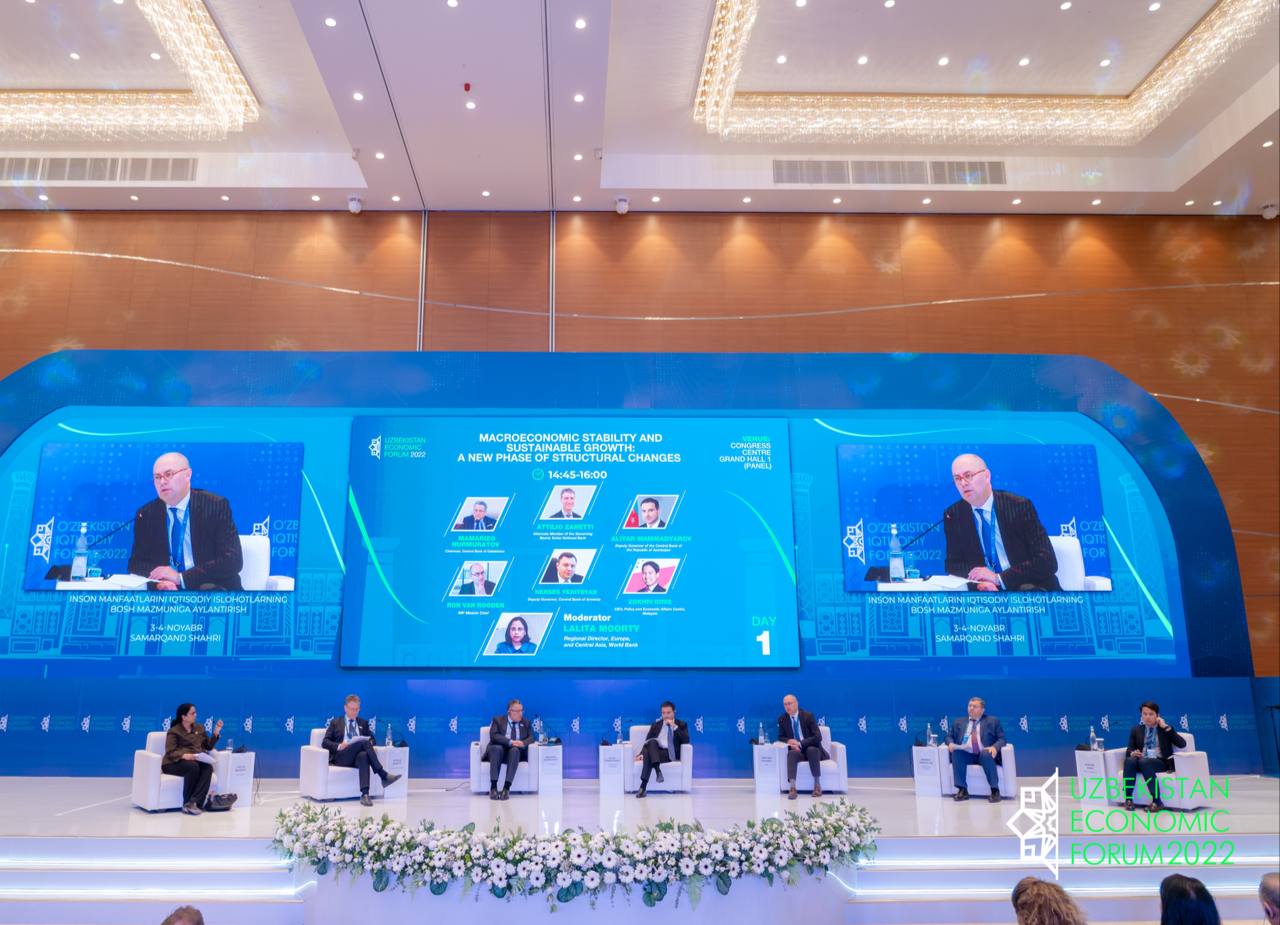
A special session on IPO pioneers, hosted by Avesta, Freedom Broker and Rothschild & Co., examined the equity stories of Uzmetkombinat JSC, UzAuto Motors JSC, and Uzbekneftegaz JSC, among the first companies in Uzbekistan to successfully complete IPOs. Qishloq Qurilish Bank JSCB separately outlined its goal of becoming first state-owned bank to move towards the partial privatisation through an IPO on the Tashkent Stock Exchange.
Whiteshield Partners, the World Bank and the Ministry of Finance combined to host a session on the role of international ratings and indicies while global professional services network PwC held a session called Growth and Transformation from an ESG Perspective.
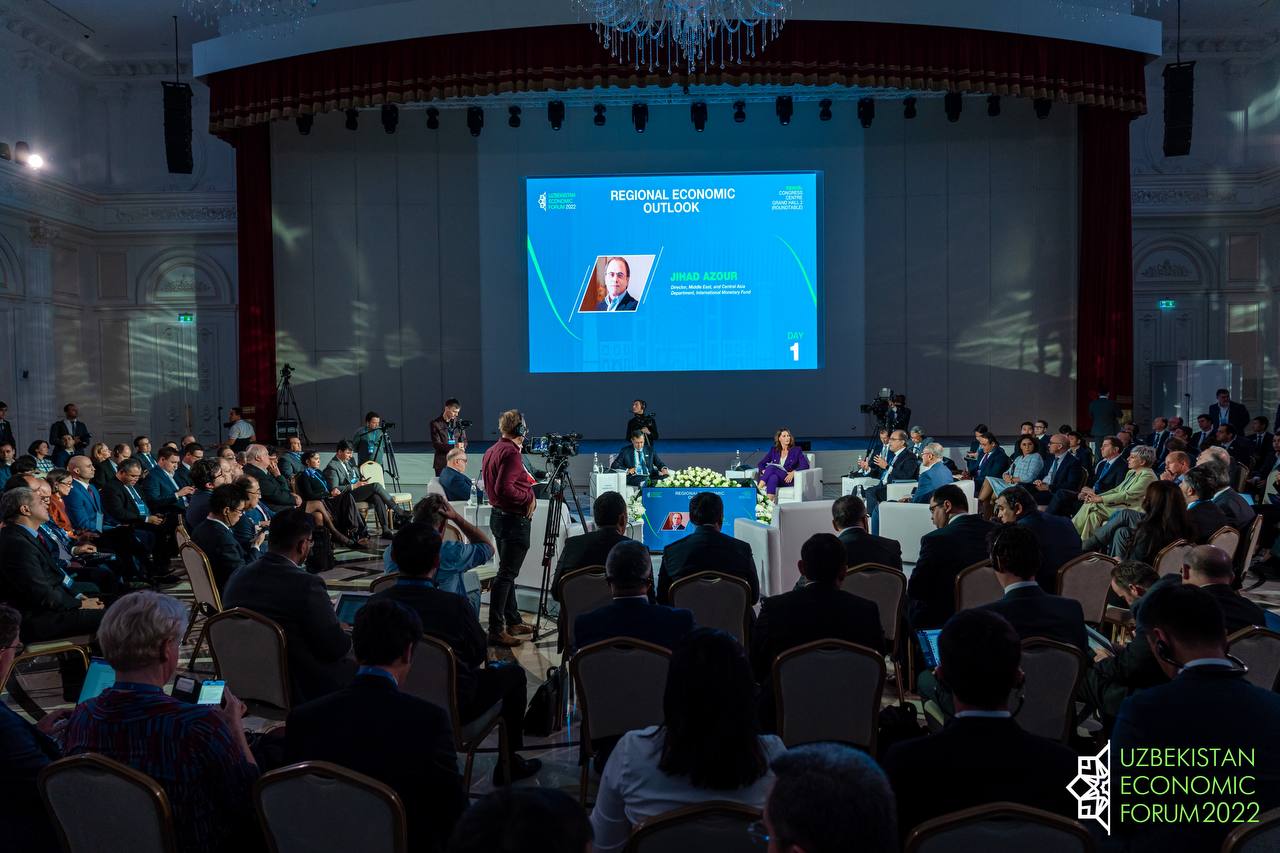
The World Bank signed a $100 million loan agreement to help implement the Medium-Size Cities Integrated Urban Development Project. By the end of the forum, agreements had been finalized for 62 new projects, in areas including private sector financing, public-private partnerships, budget support, education, energy, urban planning and industry. Some of the highlights included:
- A general agreement between the International Swaps and Derivatives Association (ISDA Master agreement) and its annex (ISDA schedule) and JPMorgan Chase Bank for conducting swap operations to hedge financial risks.
- Consulting company Deloitte and the State Asset Management Agency signed a commercial agreement with a professional consulting company to develop a strategy for the privatization of Uzbekistan Airways JSC.
- The Ministries of Finance and Health, the Agency for the Development of PPP and the Asian Development Bank of Uzbekistan signed an agreement on the provision of consulting services in the amount of $240 million for a project to build medical centers in the Bukhara and Andijan regions under a PPP arrangement.
- The Islamic Trade Finance Corporation and Infinbank ATB signed an agreement on import and export, receiving $10 million in financing.
- An $6 million agreement was signed to finance the EBRD's GEFF program, which helps small business and private entrepreneurs enter the “green economy.”
- KDB Bank JSC and ATB Aloqabank signed a general agreement for an on-lending loan worth $5 million
In another sign of the growing international focus on Uzbekistan, Bloomberg, Reuters, BBC News, Debtwire, Global Capital and a number of other news organizations covered the two-day event. In a far-reaching report on the forum, bne IntelliNews zeroed in on the challenges and opportunities presented by the country’s rapidly growing population.
At the closing session, the director of Uzbekistan’s Institute of Forecasting and Macroeconomic Research presented a set of “word cloud” graphics that summed up guests’ views of the key takeaways from the event. Top phrases included “open-dialogue,” “opportunities,” “human capital,” “innovation” and “transparency.”
You can find replays of key discussions at the forum here:
https://www.youtube.com/playlist?list=PLFVjJAFrmUTKHztBCobhHnYXzWX68BHZE
Go here to find the Uzbekistan Economic Forum home page:



